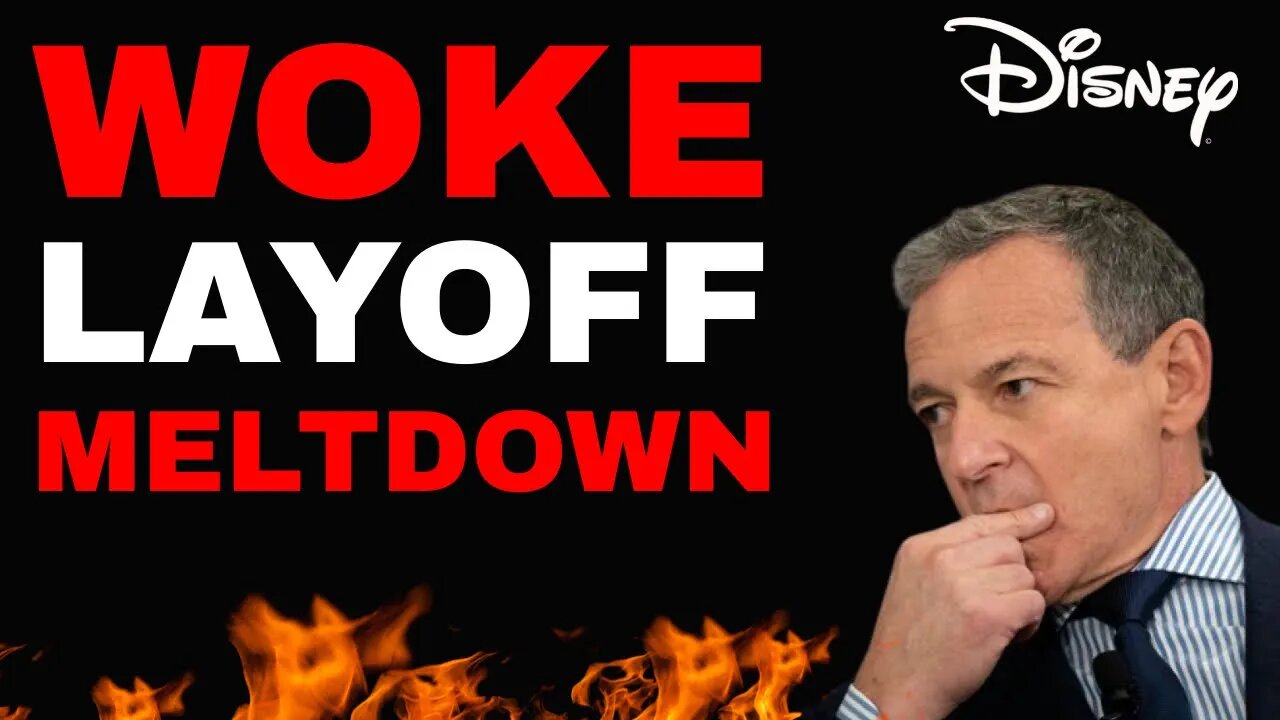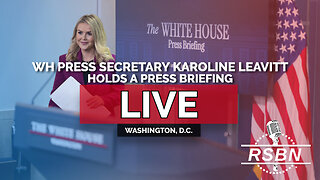Premium Only Content

WOKE MELTOWN OVER DISNEY LAYOFFS! ESG Critics Say It’s Putting Shareholders Ahead of Workers!
Disney increased its payroll by 15% in 2022-- a full 33,000 people. That was ridiculous. Now the ESG people are furious with Disney. Why? Because the 7,000 layoffs are going to affect them, and affect them tremendously. It's not going to be the parks workers who get cut. It's going to be 50% (3500 people!) in marketing, and the rest in other jobs that sound like they should have never been hired in the first place.
PLAYLIST 115 VIDEOS: WARNER BROTHERS DISCOVERY & DAVID ZASLAV
https://www.youtube.com/playlist?list=PLUPkiRW84R1gxDL-u2P1Ac4bE5bONlHix
SUBSCRIBE TO ADAM POST SPEAKS:
https://www.youtube.com/c/AdamPostSpeaks
Follow ADAM POST on Twitter:
https://twitter.com/comicswelove
ADAM POST email:
adampostmediagroup@gmail.com
Like many companies, Walt Disney does its best to avoid controversy. But in winning over investors this past week, with plans to cut costs and reinstate its dividend, Disney may have irked investors who consider the company a leader in ESG, or environmental, social and governance investing.
In his first earnings call since taking back the reins of Disney (ticker: DIS), CEO Bob Iger promised $5.5 billion in cost cuts, adding that to achieve that target, the company would be reducing “its workforce by approximately 7,000 jobs.” He also said the company hoped to reinstate its dividend by the end of the year. The cuts are not expected to affect employees in hourly front-line roles at the theme parks.
Analysts applauded and the markets liked the initiatives, sending Disney stock up more than 8% in after-hours trading. But the changes also exposed the company to criticism that it is prioritizing one constituency—shareholders-—at the expense of another: its 22,000 workers worldwide.
Iger is also one of Hollywood’s most highly paid CEOs. He will receive an annual base salary of $1 million and a long-term incentive award with a target value of $25 million—highlighting another controversy: a wide gap between CEO and worker pay.
“The signal that Disney is sending with the layoffs is that they are seeking to be more efficient, but at the same time they have a CEO with exorbitant pay. That contrast of high CEO pay versus layoffs isn’t only controversial, but a slap in the face of workers,” says R. Paul Herman, founder and CEO of HIP Investor, a California-based sustainability ratings, data, and analytics provider. (HIP stands for “Human Impact plus Profit.”)
Some say the optics of pursuing a cost-cutting program, alongside increased dividends, is awkward from an ESG perspective, especially when coupled with high CEO pay, a favorite target of “say-on-pay” shareholder proposals.
Herman says Disney’s CEO-to-worker pay ratio was 644 to 1, according to its 2022 proxy statement, which is above average versus its peers. Netflix (NFLX), for example, is 202 to 1, and Paramount Global (PARA)—which includes CBS and Viacom—is 212 to 1.
Iger isn’t Hollywood’s highest-paid CEO, though. That title may go to Warner Bros. Discovery (WBD) chief David Zaslav, whose total compensation of $246.6 million in 2021 would have put Warner’s CEO to worker-pay ratio at 2,972 to 1.
Disney does score well in other areas of corporate social leadership. Herman points out that Disney is a leader in gender diversity for employees and has been “supportive of the LGBTQ community, especially in the controversy with Florida on ‘don’t say gay’ where Disney ultimately supported employees.”
Compared with media peers, Disney scores 98 out of 100 points on a scale that balances “everything from people to planet to trust,” says Herman. “They’re a leader in their industry.” Against the broader universe of 11,000 companies globally, however, Disney’s HIP Rating is 61. Its CEO-to-worker-pay ratio brings down its rating, Herman says.
Other ESG score keepers also rank Disney highly. MSCI (MSCI), the largest ESG rating company, gives Disney an “A” or “average” rating among 68 peers in media and entertainment, deeming the company a “leader” on corporate governance, human capital development, and privacy and data security.
Disney declined to comment but referred Barron’s to comments Iger made on the earnings call. “While this is necessary to address the challenges we’re facing today, I don’t make this decision lightly,” he said, adding “I’m mindful of the personal impact of these changes.”
One anti-ESG activist welcomed Disney’s focus on shareholders. Vivek Ramaswamy, co-founder and executive chair of Strive Asset Management, says tougher economic times expose companies like Disney for “virtue signaling” when “times are good.”
-
 3:35:49
3:35:49
Right Side Broadcasting Network
4 hours agoLIVE REPLAY: White House Press Secretary Karoline Leavitt Holds a Press Briefing - 7/17/25
86.2K25 -
 1:16:33
1:16:33
Nikko Ortiz
2 hours agoLive - News, Politics, Podcast And Naaah Im Playin We Chillen
16K -
 2:06:45
2:06:45
Side Scrollers Podcast
4 hours agoAstronomer CEO/HR Scandal, NPR/PBS DEFUNDED, Mortal Kombat II Trailer REACTION | Side Scrollers
3.31K -
 9:10
9:10
Tactical Advisor
5 days agoNEW Ported CZ P-10C (FIRST LOOK)
13 -
 19:06
19:06
ArturRehi
11 hours agoLet's Analyse the Estonian Army: Are they ready for WAR WITH RUSSIA? | In-depth Analysis
32 -
 LIVE
LIVE
Viss
2 hours ago🔴LIVE - How to Win The Battleground with Tactics, Precision, & Knowledge!
177 watching -
 23:08
23:08
The Boomer Effect
2 hours agoMaking College Pay
7 -
 51:01
51:01
Sean Unpaved
2 hours agoNo Respect for Hurts, Gillis Goes Wild, MLB Trade Deadline Buzz, & CFB's Big Question
18.5K -
 1:04:54
1:04:54
Timcast
3 hours agoCNN SHOCKED Trump APPROVAL Went UP Following Epstein Scandal
133K103 -
 10:51
10:51
Adam Does Movies
3 hours ago $0.35 earnedI Know What You Did Last Summer - Movie Review
13.3K1